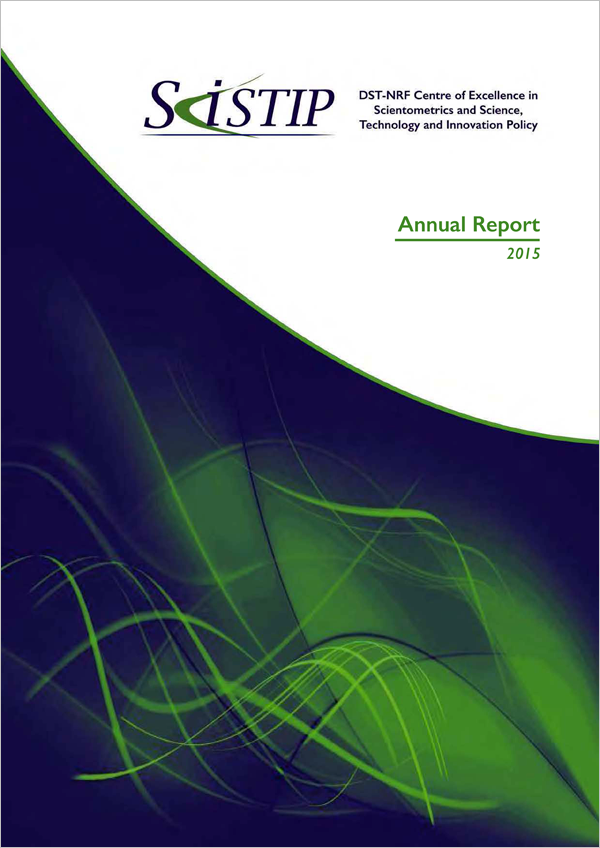News, February 2017
Foreword by the Vice-Rector: Research, Innovation and Postgraduate Studies, Stellenbosch University
“Since SciSTIP was officially established on the 1st of April 2014, it has made major strides exceeding expectations in all its endeavours.
The SciSTIP research programme is diverse and has gained traction since its inception. The focus has been not only South Africa, but the African science landscape at large, with the aim to provide in-depth descriptive and interpretive analyses of the state and dynamics of science on the continent.
In 2015 a detailed overview of the data of seven institutions was published in a report that culminated in a book, “Knowledge production and contradictory functions in African higher education”, published in 2015 by open-access publisher African Minds. It was clear that South African universities still produce the bulk of scientific output on the continent.
A study of African research funding landscapes and how this impacts on bibliometric data has highlighted the role of funding organisations as partners in the creation of new scientific knowledge, identifying relevant underfunded disciplines and organisations. This study will also assess the role of funding and collaboration and how these affect performance and the impact of African science.
A key challenge on the African continent is the development of the next generation of academics, following a worldwide trend with a focus on doctoral studies. To address this, SciSTIP produced a book entitled “Doctoral education in South Africa” that was published in November 2015. The evidence presented in the book makes a significant contribution to understanding the underlying dynamics of the doctoral focus and its implications.
Institutions and funding agencies are increasingly valuing the societal impact of research and innovation. In this regard SciSTIP is on the forefront as to how this political ideal of the societal impact of research and innovation could best be assessed.
SciSTIP has continued to grow student numbers in the master’s and doctoral programmes in Science and Technology Studies (STS), and has also achieved its transformation goals, with 70 % of the students being black and 53 % female. During the 2015 academic year a total of 43 (25 master’s and 18 doctoral) students were registered in the STS MPhil and PhD programmes, respectively. Five of these master’s students graduated in 2015.
I am confident that SciSTIP will continue to make a significant contribution to the measurement of scientific impact and that their research will influence policy in the years to come and I would like to wish them well in their endeavours”.
Prof T E Cloete
30 March 2016


